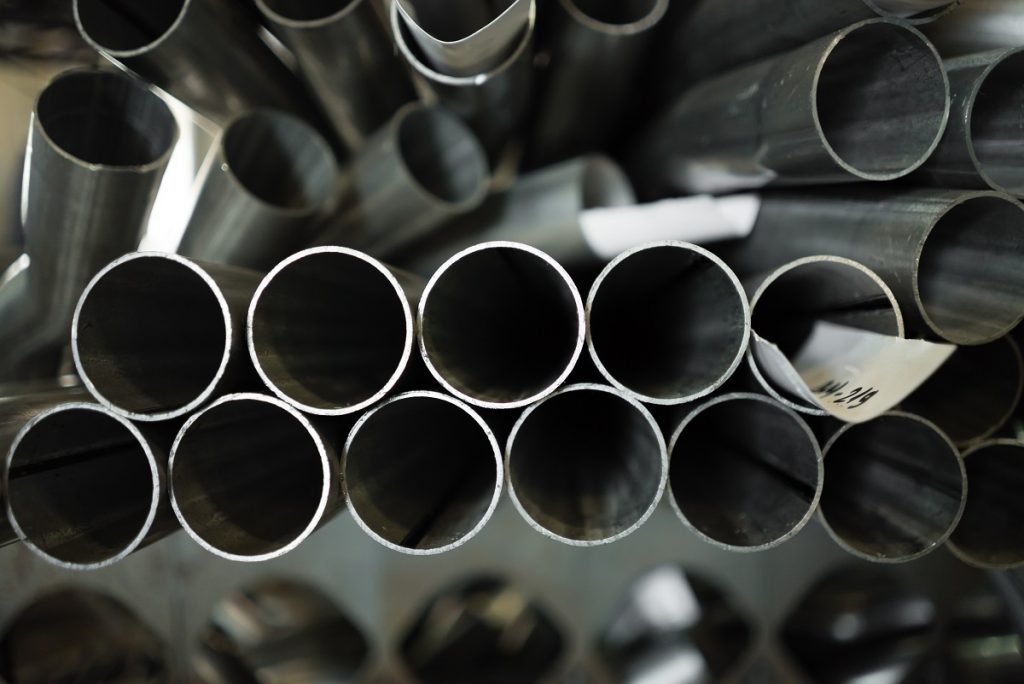What are some residential uses of pipes?
- Plumbing
- Sewage
- Electrical conduits
- Decorative
- HVAC systems
There are various residential uses of pipes that are designed to keep a structure’s plumbing, sewage, electricity, and HVAC systems intact. Pipes are designed to facilitate the transmission and flow of fluids which makes them a versatile material in the home. Without these materials, most of the utilities in this type of building won’t even function properly, much less work.
Different types of pipes have various properties and their functionality depends on the type of application. While the most common is for fluid conveyance, there are cases wherein pipes may be used to house electrical wiring or even be used for decorative purposes. Continue reading to learn more.
Plumbing
In residential spaces, pipes are often used in ensuring that plumbing systems are in place. Every building has its own network of pipes designed for water supply. These materials are typically attached to other components such as water meters that help determine the building’s consumption of water on a monthly basis. This information is what helps water service providers in billing or even in solving plumbing-related problems.
Although older homes use cast iron material for their plumbing, steel pipes are the most ideal due to their numerous properties. As a material, steel is highly ductile and can be fashioned in various sizes. This makes the pipe installation and maintenance processes much easier, which is important in repairs. Another feature is that steel pipes are durable — they can last for as much as 5 decades without any damage.
Sewage
Another application that can be found in homes is sewage pipes which help redirect the flow of wastewater away from the building. In many cases, sewage wastewater is typically stored in a septic tank. The waste substances can either be deposited in an external filtration plant, or they could also undergo on-site treatment in the tank itself.
As mentioned before, steel pipes are sturdy enough to handle drastic changes in pressure that may occur in the flow of fluids. For this reason, they’re a great choice of material for sewage systems. They don’t leak, form cracks, or develop pitting corrosion that can cause holes in the pipes and bursts in the seams.
Steel pipes prevent potential contamination that may occur once wastewater speed into underground soil — after all, this may be harmful to the structure’s foundation. More than that, the pipes also prevent wastewater from regurgitating back in water basins or containers such as sinks, bathtubs, shower floorings, or other indoor drains.
Electrical Conduits
Powering all the electrical utilities inside a home can also be possible with proper installation and design of electrical equipment. This is through ensuring that all the electrical wiring is organized and free from external factors that can affect a building’s electrical supply.
With this in mind, pipes have also been useful in housing electrical conduits for every home. Different varieties may exist depending on the material. These can range from Rigid Metal Conduit Pipes, Electrical Metallic Tubing, or Rigid Polyvinyl Chloride (PVC) Pipes.
Unlike sewage pipes, electrical conduit pipes tend to have smaller dimensions — ranging from 20 millimeters to 32 millimeters, depending on the supplier. They are oftentimes found in underground electric cables or exposed wiring in order to house and protect wires from environmental elements.
Decorative
Various residential pipes also have excellent recycling or repurposing capabilities, which is why it’s not surprising that they may also be used in decorative applications. For example, repurposed pipes can be cut and modified to become clothing racks, pen holders, garden pots, storage spaces, and many more.
Although other kinds of pipes are excellent for decorative use, steel pipes are the better choice because they can be recycled infinitely without losing their properties. If you need to create any custom-built object made out of recycled steel pipes, you can certainly do so with the right tools and materials.
HVAC Systems
Another residential pipe use can be found in the different HVAC systems that are present in the home. These can include refrigerators, air conditioning units, condenser units, heaters, water pumps, and other kinds of ventilation systems.
Different piping types — be it copper, cast iron, or PVC — are still widely used in HVAC systems because of their ability to withstand any changes in temperature and pressure without affecting the material. Steel pipes, for example, do not combust and are considered to be fire-resistant. This is beneficial for any HVAC system that is dedicated to heating or cooling purposes. On the other hand, copper pipes are useful for air conditioning condenser units that are located outdoors, while PVC-based pipes are mainly installed in ventilating equipment.
Key Takeaway
Some of the many residential uses of pipes can be found in plumbing, sewage, HVAC systems, electrical conduits, or simply in decorative applications. Different pipes exist to serve a purpose. For example, steel pipes are suitable for sewers and plumbing, while PVC the water-resistant nature of PVC pipes might make them a better choice for any ventilation system.
In need of high-quality pipes for your home? Supreme Pipe has the products that you need! Click here to view our products and services! You may also contact us for any inquiries here.
